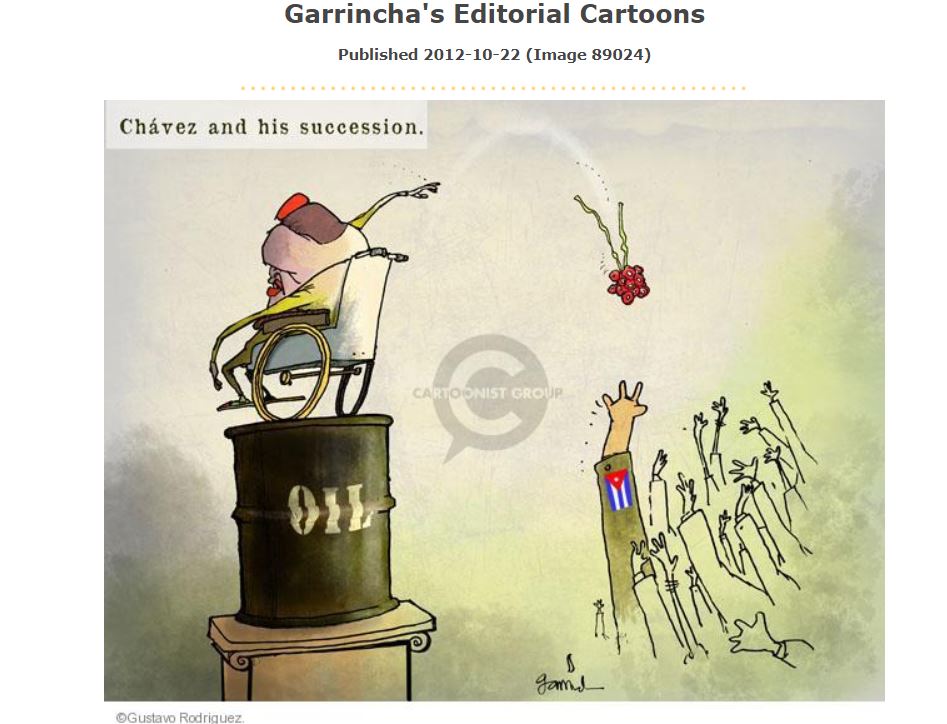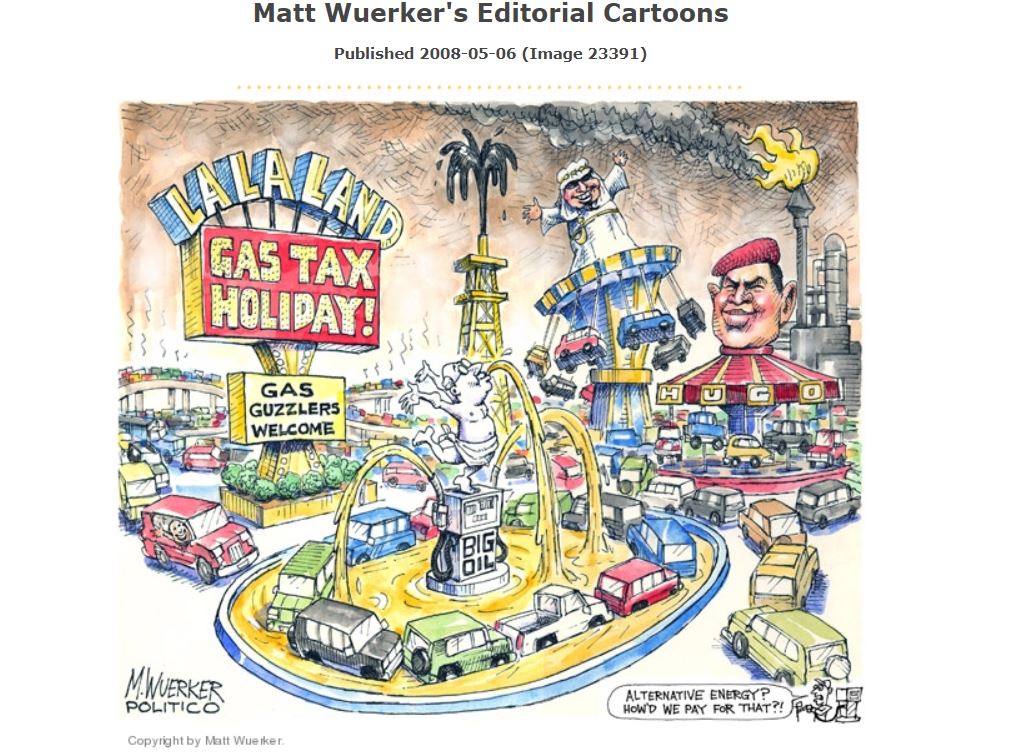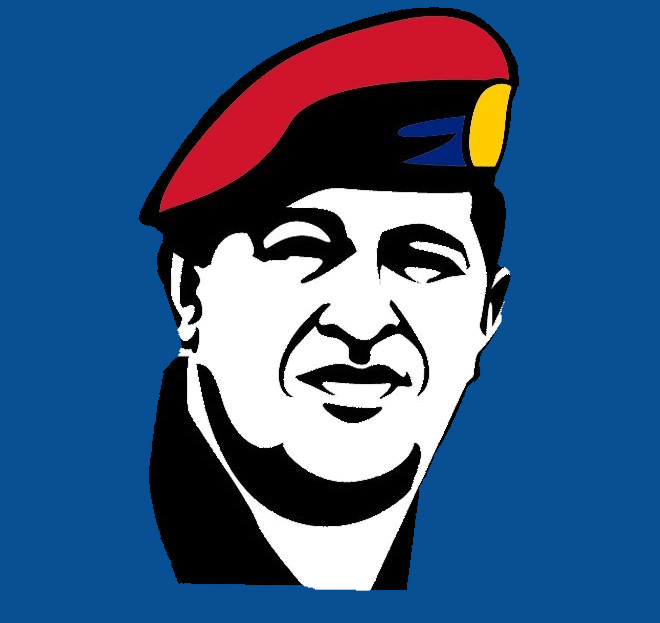American Dependency on Venezuela for Oil
Newspapers
Trade and oil overshadow nearly all reports on Chavez. The relationship between the United States and Venezuela is bound together with this discussion of oil and, in a broader sense, power. Though Chavez and Bush constantly fight against one another discursively, the United States relies on Venezuela for oil. The tension touches on Foucault’s discourse of power and Said’s analysis of exploitation, as the United States holds power over Chavez through oil production. The media demonizes Chavez or discredits his leadership tactics when he distances himself from the tensed relationship by abandoning oil trade deals and trading with other US adversaries such as Russia and China. This change is highlighted prominently during the 2002-2003 PDVSA strikes. Chavez was seen as a poor and undemocratic leader since the largest producer of oil in the country was fighting against the government. Chavez was also depicted as damaging the booming economy of Venezuela. The single significant policy position that Chavez was tied to was oil since it directly related to the United States, and therefore, was the only legitimized one. Though his social welfare was discussed, it was never given as much power or sincerity as oil. This imbalance was because his aid to the poor was seen as a manipulation tactic to garner support, akin to the socialist revolution of Castro’s communism, or trivial since it did not concern the hegemonic United States.
Policy
As a country with vast oil wealth, the U.S. had a vested interest in developing a trading relationship with Venezuela. With an economy built on fossil fuels, the U.S. had a greater practical political interest in Venezuela’s oil than its people and their well-being. For the U.S., the most effective way for it to benefit from that oil was through free trade policies with Venezuela. The neocolonialist nature of these efforts was clear, the U.S. was interested in extracting the natural resources of Venezuela in a way that befitted the American economy without concern for its effects on Venezuela itself. However, Hugo Chavez served as an impediment to the U.S. trading goals. Chavez was wary of free trade policies and was not eager to flood the U.S. with his country’s oil wealth. To U.S. officials, this could not stand. Therefore, using its asymmetry of power and discourse as described by Michel Foucault, the U.S. disseminated a hegemonic narrative that Chavez was creating deep harm to the Venezuelan economy by refusing to participate in free trade negotiations. Although this narrative did not sway Chavez, U.S. neocolonialism continued through the efforts of American multinational oil companies in Venezuela.
Political Cartoons
Many of the political cartoons analyzed focused on American dependency on Venezuela for oil throughout Chavez’s presidency. Within the political cartoons, Chavez is depicted as the gatekeeper to the oil – a precious resource for the United States. Chavez is seen sitting on oil barrels, with the bottom of his body as an oil rig and seen in a wheelchair resting over oil.
The discussion and depiction of oil in political cartoons are notably connected to Foucault’s discourse on power. This is one of the main ways that Venezuela and Chavez exercise power over the United States. This practice comes with an extreme cost for all parties involved, including the American and Venezuelan people, the governments that represent them, and foreign trading powers, such as countries in the Middle East. Said’s analysis of “The White Man’s Burden” can also be applied. There is a considerable discussion on the reasons why the United States government tries to meddle in Venezuelan affairs. The U.S. government states they are spreading democracy and supporting the Venezuelan people since it is their duty as the “White Man.” The U.S. is operating under the guise that the “Orient” are stuck in their ways, and without help, they can never change. However, based on the American need for oil, the “White Man” is operating on a perception that is significantly fueled by political motivations.


Videos
The most footage about crises in Venezuela has at least one mention of oil. Venezuela is either the “4th largest oil exporter” or “supplies 12% of the United States oil supply,” or “has a lot of oil.” Whether talking about violent protests, potential infringement on Venezuelan liberty, United States involvement in elections, or a strike, a news clip will address oil. The reason for concern is not the issue in Venezuela but the dependence on oil and effect on the United States. The protests about democracy and the general strike on oil in 2002 affect the power that the United States has on Venezuela, which is through their trade relationship of crude oil and gasoline. When the oil strike changes to a general strike and becomes a greater issue, the United States expresses about a change of leadership through elections before the Venezuelan Constitution stated, going back to an attempt of the United States to hold power over Venezuela and Chavez.
